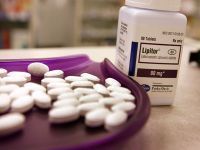Article
Statins Reduce Risk of Active Tuberculosis
Author(s):
A South Korea meta-analysis found that, similarly to C. difficile, tuberculosis risk could be limited by the lipid-lowering agent.

Statins, therapies knowns for lipid-lowering capabilities that have a benefit across cardiovascular and inflammatory conditions, could help prevent individual risk for active tuberculosis (TB).
In a cohort study presented at the 2018 IDWeek Annual Meeting in San Francisco, CA, this week, a team of South Korea investigators reported that an association between statins and lowered propensity of active TB was prevalent in more than 1.5 million people over 11 years.
Led by Min-Chul Kim, MD, of the Division of Infectious Diseases at the Chung-Ang University Hospital in Seoul, investigators assessed the National Health Insurance database and its subset population of individuals to receive medical check-ups in South Korea. They managed to compile about 1.57 million people as representative of the entire country’s population.
Of the population, 107,689 people were identified as statin users, and 433,067 as non-statin users. Using propensity score-matching, investigators analyzed 26,036 people from each side. Active TB development was monitored in the matched pairs from 2003-2013.
Investigators found that the number of active TB cases was 150 in 31,645 person-years, or 4.74 per 1000 (95% CI: 3.98 — 5.50) in statin users, and 902 in 153,401 person-years (5.88 per 1000; 95% CI: 5.50 - 6.26) in non-statin users. Statin users reported a significantly lower risk of TB than non-users—a hazard ratio (HR) of .78 (95% CI: .65 - .93; P = .006).
Subgroup analysis showed statin use also reduced the risk of TB significantly in subjects without diabetes—a condition with comorbidities commonly treated with the agents—but not in patients with diabetes. Respectively, the reported HRs were .73 (95% CI: .56 - .95; P = .019) and .83 (95% CI: .54 — 1.28; P = .40).
The findings follow previous clinical evidence that statin may have value across a gamut of infectious disease indications. A meta-analysis involving nearly 35,000 cases of Clostridium difficile infection (CDI) from earlier this year found that statin use could be associated with a 20% risk reduction for the gastroenterological infection.
In an interview with MD Magazine® at the time, corresponding author Sahil Khanna, MBBS, advised that healthcare providers continue to encourage the use of statins when indicated in patients, “not only for their direct cardiovascular benefits but also for indirect benefits such as prevention of CDI.”
Kim and company similarly concluded in their TB-based assessment.
“These epidemiologic findings provide strong evidence that statin use decreases the risk of active TB,” investigators wrote.
That said, they noted that statins’ protective effect against TB was attenuated by the prevalence of diabetes. Further assessment into the effect of statins on TB, including experimental and clinical research, should be considered.
The study, “Statins decrease the risk of active tuberculosis: a propensity score-matched analysis,” was presented at IDWeek 2018.
Click here to sign up for more MD Magazine content and updates.
Related Coverage >>>
Single-Dose Baloxavir Marboxil Cuts Time to Flu Recovery in CAPSTONE-2
Data Provides Reassuring News Concerning Spread of Community-Onset Candidemia, For Now
Opioids Prescribed Twice as Often for Women with HIV Than Men





